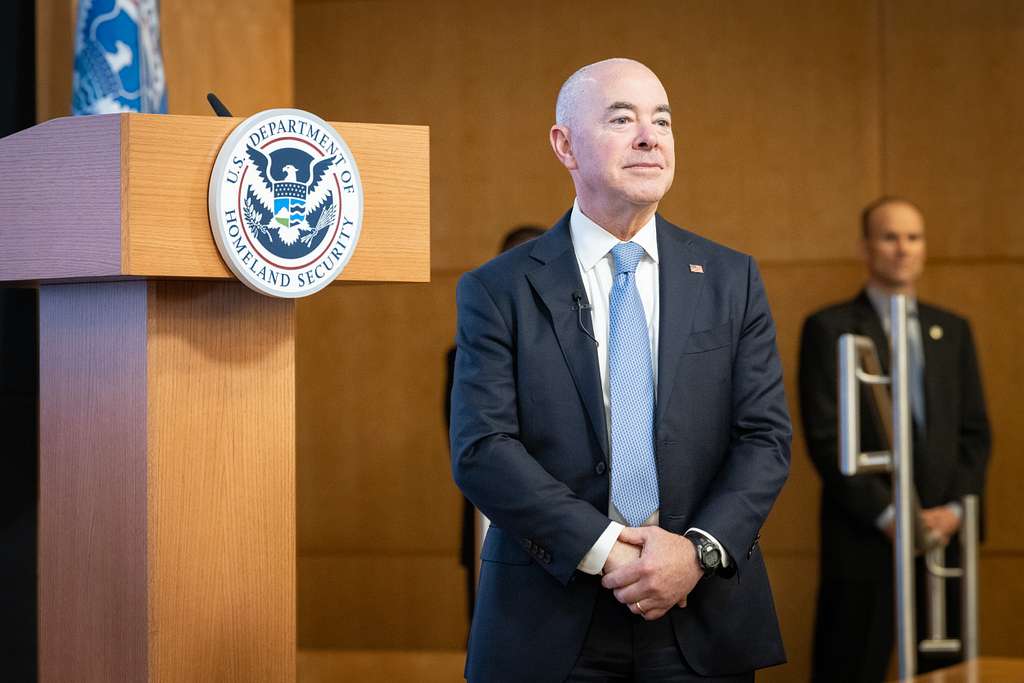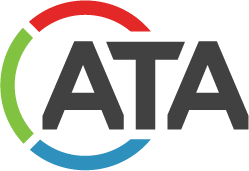
National Council of Textile Organizations (NCTO) President and CEO Kim Glas issued a statement welcoming the textile enforcement plan released by Department of Homeland Security (DHS) Secretary Alejandro Mayorkas on April 5, 2024, as a critical step to combatting import fraud and circumvention of free trade agreement rules and trade laws.
The plan outlines pillars and action items that are essential to improving customs enforcement in response to a wide range of illegal trade practices, as well as fraudulent activities that are worsening the economic crisis facing the U.S. textile industry. The DHS plan comes in response to the industry’s active calls for increased enforcement under free trade agreements (FTAs) and trade and tariff laws.
Statement by NCTO President and CEO Kim Glas:
“We strongly commend DHS for the release of a robust textile and apparel enforcement plan today. We also greatly appreciate Secretary Mayorkas’ personal engagement in this urgent effort and believe it’s a strong step forward to addressing pervasive customs fraud that is harming the U.S. textile industry.
The essential and vital domestic textile supply chain has lost 14 plants in recent months. The industry is facing severe economic harm due to a combination of factors, exacerbated by customs fraud and predatory trade practices by China and other countries, which has resulted in these devastating layoffs and plant closures. DHS immediately understood the economic harms facing the industry and deployed the development of a critical action plan.
NCTO has been actively engaged with administration officials including meeting with Secretary Mayorkas to call for an aggressive public enforcement plan and strong penalties to deter fraud and illegal trade practices that are undermining the domestic industry’s competitiveness. As a result of that meeting, Secretary Mayorkas immediately directed DHS personnel to construct a comprehensive textile and apparel enforcement plan, and we are grateful to DHS for swiftly implementing this urgent plan.
Our industry requested DHS and U.S. Customs and Border Protection (CBP) take the following essential actions to mitigate this economic harm and to maximize civil and criminal penalties for trade predators, while also creating a significant public awareness campaign.
The industry requests included:
- Ramped up textile and apparel enforcement with regard to Western Hemisphere trade partner countries, including onsite visits and other targeted verification measures to enforce rules of origin as well as to address any backdoor Uyghur Forced Labor Prevention Act (UFLPA) violations.
- Increased UFLPA enforcement to prevent textile and apparel goods made with forced labor from entering our market, including in the de minimis environment. Immediate expansion of the UFLPA Entity List, isotopic testing, and other targeting tools.
- Intensified scrutiny of Section 321 de minimis imports and a review of all existing Executive Branch authorities under current law to institute basic reforms to this outdated tariff waiver mechanism.
We welcome the textile enforcement plan which centers around five elements, including: robust inspections and enforcement of UFLPA; expanding audits and increasing foreign verifications of our free trade agreement rules of origin; increasing inspections and testing of small internationally shipped packages in the de minimis environment; expanding the UFLPA Entity List to identify bad actors in the textile environment; and building stakeholder awareness. Taken together, these actions can help combat an alarming rise in fraud, transshipments, and illegal trade in our sector. We appreciate that these enforcement activities have already been initiated— even before the plan was announced— including increased inspections, audits, and other targeting procedures related to our FTAs and UFLPA. We value these efforts and the increased public awareness that those who violate trade laws will be held accountable to the maximum extent possible as an effort to deter fraud and uphold the integrity of our critical trade rules.
We encourage CBP to continue doing the necessary onsite and other verifications to curb rampant fraud and circumvention of FTA and forced labor trade laws. This intensified enforcement will lead to more transparency in textile and apparel supply chains, which support 500,000 U.S. textile workers and 2 million workers in co-production partnerships within the Western Hemisphere.
It’s critical these ongoing actions are backed up by strong civil and criminal penalties to act as a deterrent to bad actors who have been circumventing rules and trade laws and harming U.S. textile and apparel producers as well as our Western Hemisphere trade partners. Punishing the bad actors quickly and amplifying these penalties are essential measures to deterring the illegal trade that is undermining this essential sector.
We also appreciate DHS ramping up inspection of de minimis packages. While this plan is specific to textile and apparel enforcement, it’s important to note that we are aware that the administration is also exploring other avenues, including regulatory changes, to address concerns regarding de minimis shipments. This was a critical request made by our industry and many other stakeholders. We commend the administration’s expeditious review and urge them to close de minimis to the maximum extent possible under their current authorities. This loophole in U.S. trade law facilitates 4 million duty-free packages a day, putting a significant strain on CBP resources, making it virtually impossible to enforce U.S. laws, and significantly hurting domestic manufacturers and retailers.
We also urge Congress, without delay, to pass critically needed comprehensive de minimis reform legislation, given the urgency of the situation and the economic harm this loophole is causing.
We look forward to continuing frequent communication with the CBP and DHS teams to ensure effective enforcement of our trade laws and trade agreements as part of these ongoing and intensified activities for our sector.
We are grateful for all the strong bipartisan support on the Hill in amplifying the urgency of the needs of our sector. Our industry stands ready and willing to do whatever is necessary to help ensure this plan is a success in stopping predatory trade practices and fraud from undermining this critical industrial base in order to help drive business back home. We are grateful to Secretary Mayorkas and the entire DHS team for this essential plan and are committed to working with DHS in full support of these upgraded enforcement activities. NCTO also looks forward to Secretary Mayorkas’ keynote speech at our annual meeting on April 9th in Washington, D.C.”
 TEXTILES.ORG
TEXTILES.ORG



